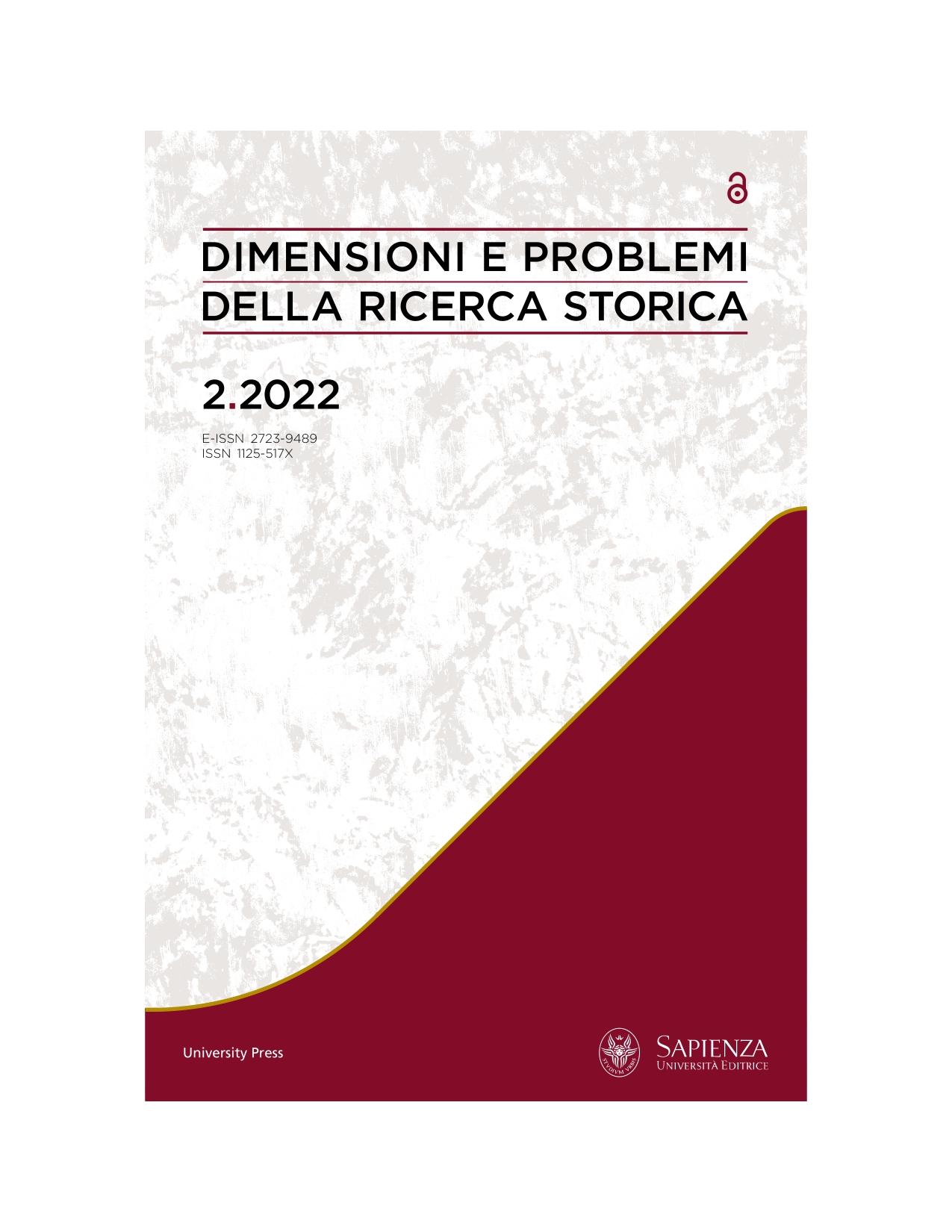The Navy of the Republic of Genoa in the Context of Mediterranean Military Renewal (16th-17th Centuries)
DOI:
https://doi.org/10.13133/2723-9489/1480Abstract
The concept of Military Revolution has provided the accepted paradigm for the understanding of transformations occurring in the Mediterranean scenario, in the 16th and 17th century, especially as regards the rise of large, public, galley fleets (in Spain, Venice, and the Ottoman Empire). When the particulars of each instance are taken into account on their own merits (beyond matters of sails and cannons), the consensus is that a broad modernization of techniques, logistics, and tactics did also occur in Mediterranean warfare, in strict relation to the development and flourishing of the chief players in the area (and of their respective land armies). The peculiarity of Genoa is, in the first place, the vast disproportion between its eminence as a geo-political and economic entity and its relatively diminutive public fleet and land army, which were no way near matching the Republic of Venice. Is Genoa, then, an instance of a failed (or embryonic, at most) military revolution? To accept the commonplace of an intrinsic backwardness of the Genoese Republic, and extend it to the military domain too, would be to disregard the massive contribution of la Superba to the prosperity of its ally, Spain, and to the history of Mediterranean armaments. Beyond the weight of the contracts secured by Genoese asientistas, one need look for no further counterexamples than the importance of harbours all along the Liguria coast within the Spanish route outlined by Parker. The dispute over naval rearmament and over its costs and prospective benefits, in fact, divided the Genoese ruling class throughout most of the 1600s. This article examines: 1. the matter largely from the perspective of the coeval debate and illustrates the extent to which stakeholders were conscious of the demands of warfare modernization to meet the trends afoot in the Atlantic and Mediterranean, based on such unpublished documents as the anonymous Trattato delle armi marittime genovesi (Treatise on Genoese maritime armaments, 17th century); 2. the bombardment of Genoa, carried out by Louis XIV’s fleet, in 1684. At that time, Genoa realised all too well that naval warfare had radically and profoundly changed, and had to face the adverse reaction of France (i.e. dynamics of global strategy).
##submission.downloads##
Pubblicato
Fascicolo
Sezione
Licenza
Copyright (c) 2023 Alessia Ceccarelli

Questo lavoro è fornito con la licenza Creative Commons Attribuzione - Non commerciale - Condividi allo stesso modo 4.0 Internazionale.


